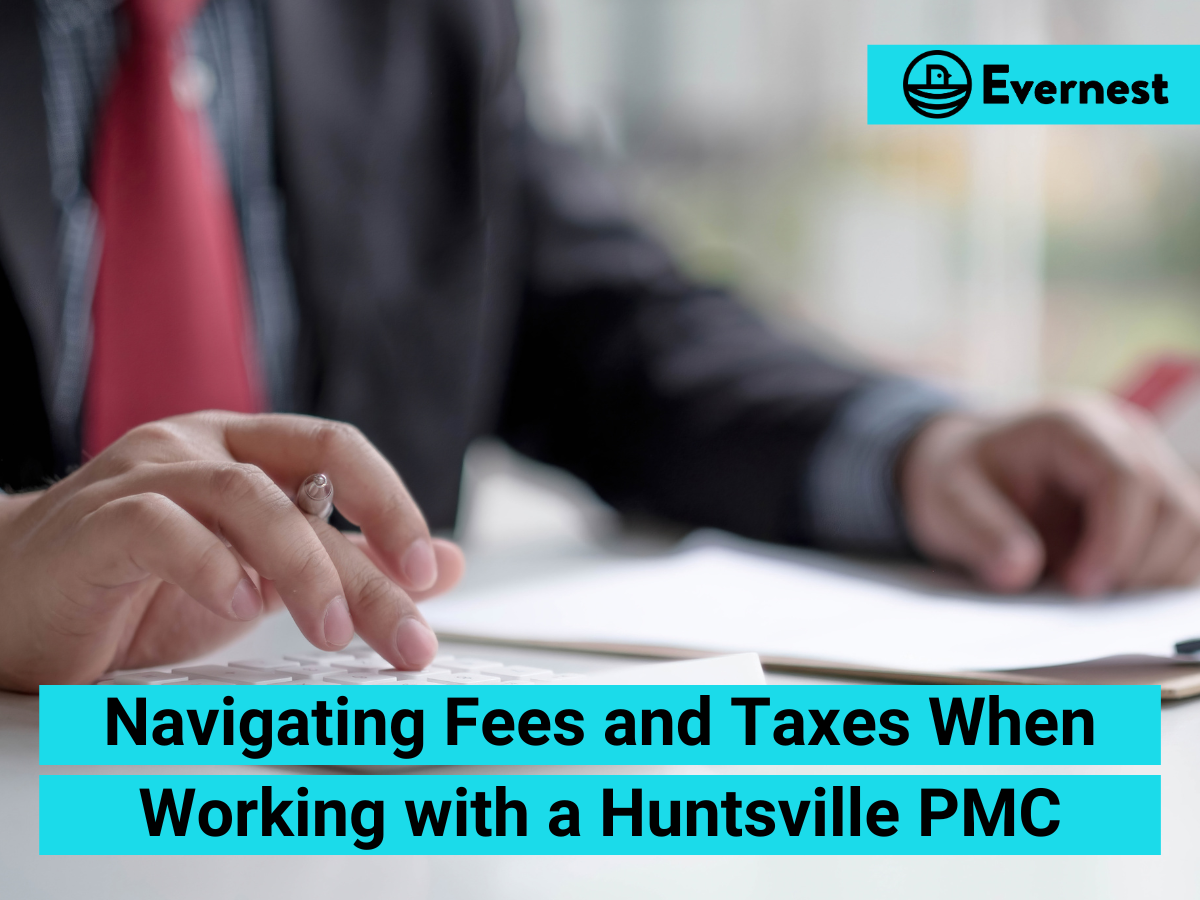Working with a property management company in Huntsville can certainly be lucrative for landlords, but it's essential to understand the fees and taxes associated with this partnership. By understanding the financial aspects involved, you can ensure that you are adequately prepared and make informed decisions.
In this article, we’ll explore the importance of financial preparedness to manage fees and taxes when working with a Huntsville property management company, the different types of property management fees, tax implications, and seeking professional guidance and additional resources.
Introduction: The Importance of Financial Preparedness
Being aware of the costs, fees, and taxes associated with managing rental property allows landlords to plan their budgets or make necessary adjustments.
All ongoing expenses such as property taxes, insurance, and maintenance costs should be carefully accounted for. Property taxes vary depending on the location and value of the property, so landlords must budget for these expenses accordingly. Insurance is another essential aspect of financial preparedness, providing protection against risks and liabilities.
When considering the potential income generated from your rental property, you should analyze the rental market in Huntsville and determine the appropriate rental rate for the property. By conducting thorough market research, landlords can ensure that their rental income covers their expenses and generates a profit.
Pro tip: Get a free rental report, including suggested rental rate for your property, here!
Another aspect of financial preparedness is understanding the fees associated with property management companies. These companies provide valuable services such as resident screening, rent collection, and property maintenance, but they come at a cost.
Understanding Property Management Fees
Types of Property Management Fees
The most common types of property management fees include:
Leasing fee
Management fee
Maintenance fee
Eviction fee
Renewal fee
Determining Your Total Management Costs
When calculating your total management costs, it's essential to consider the fees charged by the property management company, which can vary based on property size, rental income, and the level of services required. Understanding your total management costs allows you to assess the financial viability of working with a property management company in Huntsville.
Note: When considering a few different companies, it might be a good idea to run a comprehensive price comparison.
Tax Deductibility of Management Fees
While property management fees are an expense for landlords, they can be tax-deductible. Consult with a tax professional to understand the specific tax implications and how to maximize your deductions.
Property-Related Taxes
Property taxes and income tax implications are important considerations for landlords working with a property management company in Huntsville
Property Taxes
As a property owner, you are required to pay property taxes. It's essential to factor this into your financial planning. Local tax authorities can provide specific information on property tax rates and payment deadlines.
Income Tax Implications
Rental income is subject to income tax. You may want to work with a knowledgeable tax professional or a local property management company to ensure compliance and optimize your tax returns.
Tracking and Reporting Expenses
Keeping detailed records of your rental property expenses is essential for accurate tax reporting and financial management. Utilizing accounting software can help streamline this process and provide you with an organized overview of your expenses. Consult with your property management company or an accountant to ensure you are correctly tracking and reporting your expenses.
Tax Deductions and Credits
Understanding the available tax deductions and credits is crucial for maximizing your tax savings as a landlord. Consider the following property-related tax deductions:
Mortgage interest
Property repairs and maintenance
Depreciation
Insurance premiums
Professional services (property management fees, legal fees, accounting fees)
In addition to deductions, investigate potential tax credits for energy-efficient upgrades or specific rental housing incentives that may be available in Huntsville.
Section 1031 Exchange
The Section 1031 exchange allows landlords to defer paying capital gains taxes when selling one rental property and acquiring another. Understanding the requirements and regulations surrounding this tax-deferral strategy can help you make informed decisions about your rental property portfolio.
Working with Tax Professionals: Hiring a Tax Professional
Managing your rental property's taxes may seem daunting. A tax professional with experience in real estate taxation can help you navigate these complexities and ensure compliance with relevant tax laws. Consider hiring a tax professional who specializes in rental property taxation to maximize your financial benefits and minimize your tax liabilities.
Local Tax Regulations and Variations
Tax regulations and requirements can differ from one locale to another. It's crucial to familiarize yourself with the tax regulations specific to Huntsville. Local tax authorities can provide the necessary information, such as tax rates and specific rules for rental income reporting.
Deadlines and Compliance: Tax Filing Deadlines
IRS and local tax authorities in Huntsville impose specific deadlines for filing tax returns and reporting rental income. Stay proactive and ensure you understand and meet these deadlines to avoid unnecessary financial burdens.
Conclusion, Seeking Professional Guidance, and Additional Resources
By understanding the various types of property management fees, tax implications, and the importance of tracking and reporting your expenses, you can make more informed financial decisions as a landlord.
Working with a tax professional who specializes in rental property taxation is beneficial and can optimize your tax savings.
For further guidance, seek professional advice specific to your situation. Additionally, consult resources such as the IRS website, local tax authority websites, and rental property management associations for comprehensive information on fees, taxes, and best practices in Huntsville.
With adequate financial preparedness and the right resources, you can successfully navigate fees and taxes when working with a Huntsville property management company and achieve your goals as a landlord.
Looking for a Huntsville property management company to help out? Contact our local team today!


